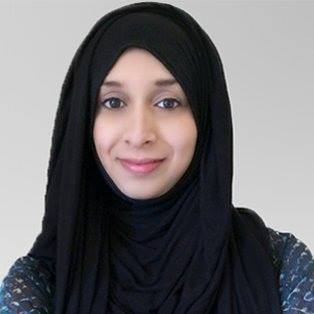Due to the Coronavirus pandemic, Muslims around the world will experience an unprecedented Eid this year as for the very first time in history, Eid prayers in the mosque will be cancelled, leaving Muslims like myself having to pray from home.
One of the fundamental elements of Eid is attending the morning Eid prayer as it encapsulates the essence of this special day and the culmination of the end of Ramadan. However, many families are now confined to having to use the space in their homes to conduct this prayer which would have otherwise seen flocks of worshippers attend the mosque.
Perhaps one of the most heart-breaking changes which we had to witness during Ramadan, was the fact that there is no longer worshippers doing tawaf around the Kaaba, due to the lockdown and restrictions imposed by the Saudi Arabian government. The kingdom stopped umrah, the non-mandatory pilgrimage, in late February due to the pandemic and we anticipate that the Hajj pilgrimage, which starts in late July may also have to be cancelled this year. It is extremely sad to see the Kaaba empty for Eid when every year, nearly 2.5 million pilgrims visit the holy sites of Islam in Mecca and Medina, yet it is a reminder of the unprecedented times that we are facing.
READ: Saudi Arabia asks Muslims to put hajj plans on hold
On a normal Eid day Masjid Al Nabawi would have been full of worshippers offering the Eid prayer but this time only the Imam and a small congregation of those who work to maintain Masjid Al Nabawi will be allowed to perform the prayer on site.
Eid is normally a time for visiting our loved ones, holding meals within our homes or at our relatives, however, this year we will see many families having to be confined to sharing the Eid meal with their immediate household. It is difficult for families who may not be able to greet their loved ones face to face on Eid but it is an essential sacrifice in our fight to tackle the virus and we hold onto the hope that next year we will not have to witness the same predicament.
![The hyprocrisy of Saudi Arabia - Cartoon [Sabaaneh/MiddleEastMonitor]](https://i0.wp.com/www.middleeastmonitor.com/wp-content/uploads/2018/09/m39-2018.jpg?resize=500%2C310&ssl=1)
The hyprocrisy of Saudi Arabia – Cartoon [Sabaaneh/MiddleEastMonitor]
The Muslim Council of Britain has issued guidelines on celebrating Eid al Fitr in lockdown in the UK to ensure the safety of those who are celebrating and have requested British Muslims to stay at home, connect with family virtually, post out Eid gifts and only pray the Eid prayer with your immediate household that you live with.
British Muslims have sacrificed and adhered to the government guidelines since the inception of Coronavirus, yet the British government continues to single out Muslims by pushing out Eid warnings on their social media pages. These sponsored Eid advertisements urging Muslims to celebrate at home has prompted Islamophobic comments from Twitter users who assume that the guidelines are being flouted by Muslims. We did not see the same type of sponsored advertising when it was recently VE day when there were street parties that were encouraged to mark the end of World War II in Europe.
This Eid calls for reflection on our freedoms and liberties and should enable us to consider those who have never had the freedom that we do and call for change. It is a time to spare a thought for our brothers and sisters in Palestine, Yemen and Syria where restrictions and lockdowns are the norms and their freedom of movement is limited due to ongoing conflict and war. It is a time to continue to raise more charity and give to those in need by donating online and offering a helping hand to those who need it the most.
This Eid we have learnt to adapt to a new situation in order to help save lives and curb the virus, but this does not mean that we cannot celebrate the true essence of Eid at home with our families and still make the most of this truly special day.
The views expressed in this article belong to the author and do not necessarily reflect the editorial policy of Middle East Monitor.

![Worshippers share a cake for the celebration of Eid in a mosque in the UK [Gettyimages]](https://i0.wp.com/www.middleeastmonitor.com/wp-content/uploads/2020/05/GettyImages-974802204.jpg?fit=920%2C613&ssl=1)







